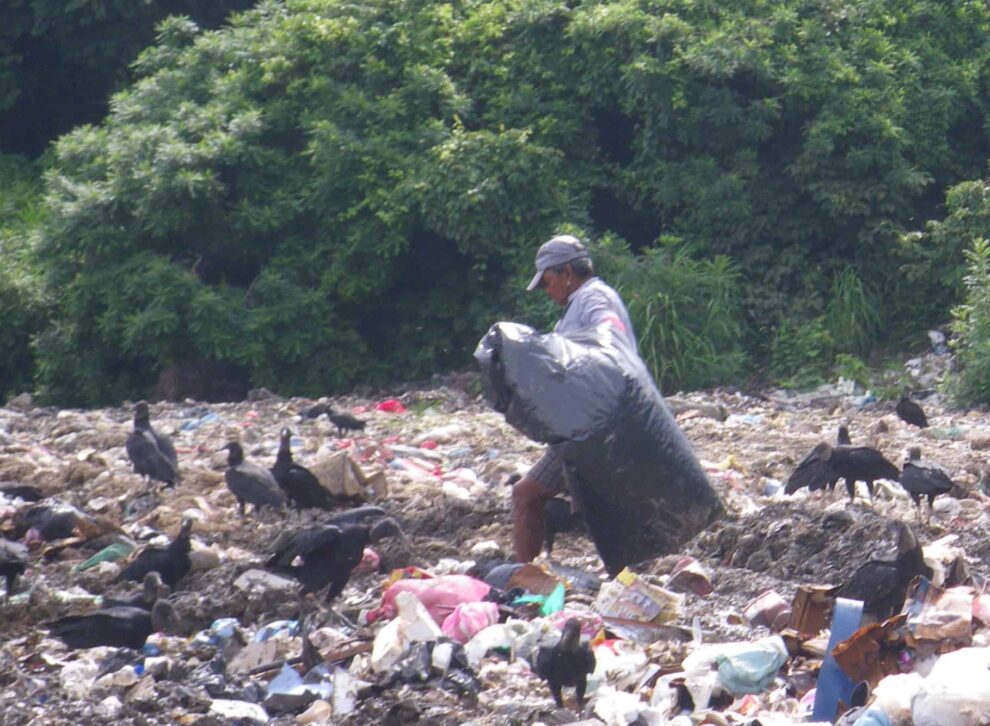Considered one of the most eco-friendly countries in the world, Costa Rica has been grappling with the problem of plastic pollution and waste management for a very long time now.
Though recycling seems to be the most obvious choice, things are not rosy as they seem. According to a 2018 report, 550 tons of plastic waste were generated every day in Costa Rica. Of this, only 9% was recycled. While 11% got mixed with non-recyclable waste and sent to landfills, a shocking 80% ended up in the waterways of Costa Rica!
What if we could effectively manage this waste at source i.e. our homes? We would contribute to reducing the amount of waste going to landfills by a considerable amount. Moreover, we would become more mindful of the materials we are using in our daily lives. More plastic or more biodegradable materials?
Come, let’s take a look at some of the ways in which you can effectively manage waste at home.
8 Tips For Effective Waste Management At Home
1. Segregate your waste
Segregate your waste into food waste, recyclable waste, and non-recyclable waste. Segregating waste at source facilitates the process of recycling, reusing, and composting the waste. When you separate dry waste from wet waste, it makes it easier for the recycling facility to recycle waste. Moreover, less waste goes to landfills, thereby helping to prevent environmental pollution.
Mixed waste is harmful to the soil as well. Harmful chemicals may leak into the soil, affecting soil fertility and human health. Therefore, hazardous materials like medical waste and electronic waste should not be mixed with wet waste. I live in Belen, Heredia, where the waste collection for recyclables is done every Wednesday morning. I generally keep collecting recyclable waste till the bin gets full, and take it out on Tuesday night
2. Compost the food waste
If you are someone who cooks a lot at home, then you may be generating a lot of food waste. Did you know? More than half of the household waste is organic matter!
So why waste it, let’s compost it! Composting this food waste helps you reduce your home’s weekly waste significantly. In addition, one-time compost can be used to feed and protect your plants for a long time.
What can be composted – Fruit scraps, vegetable scraps, tea bags, coffee grounds, egg shells, trimmings from your plants,
What should be kept out – Dairy products, fish products, any kind of oil, meat or animal products, and egg whites or yolk.
In 2020, a case study on composting was conducted in Belen, Heredia. 300 families participated, and composting bins were provided to them. In just over a month, the waste generated at the source was reduced by a whopping 16.5 tons!
3. Check with your local municipality for recycling programs
Most of the local municipalities have recycling programs in place. Some programs allow residents to recycle certain types of plastic, such as soda bottles or milk cartons. By recycling your plastics effectively, you not only keep the plastics out of landfills but also help protect the environment.
In my case, the Belen Municipality provides waste collection service for recyclables every Wednesday. You can check for your own municipality on their Facebook page.
One important thing to note is – Wash and dry the plastics before giving them for recycling. Leaking substances can contaminate other materials in the load, and the contamination can result in entire loads of recyclables being rejected.
4. Give the recyclables to a private recycling facility
Look for private companies or non-profit organizations in your area that recycle waste. Check with them to see what types of plastic they accept for recycling.
For example – Recyplast is a recycling company based out of Siquirres, Limón. The plant processes plastic waste from more than 150 farms and 22 collection centers distributed throughout the national territory.
5. Upcycle or repurpose
Upcycling and repurposing, both, help in reducing the amount of waste that goes to landfills. Upcycling also minimizes the use of resources and materials for making new products.
Upcycling is the process of taking a discarded item and repurposing it into a new object more valuable than the original item. For example, you can turn old tires into furniture.
Repurposing is using an item in a way that it wasn’t originally intended to be used. For example, you can use old or cracked coffee mugs as storage containers for spoons, knives, etc.
Noise is a family business in Costa Rica that redesigns second-hand clothes into upcycled and sustainable fashion.
6. Reuse as much as possible
If you absolutely can’t say NO to a plastic item, try to reuse it whenever possible. For example, cereal boxes and coffee containers make for excellent food storage options. A plastic bag from a supermarket can be reused for other purposes.
7. Say NO to single-use plastics
50% of all plastic produced is for single-use purposes!
The importance of saying NO to single-use plastics cannot be stressed enough. Not only are they a major contributor to plastic waste, but are also a threat to the environment. Some examples of single-use plastics are straws, cotton buds, drink stirrers, balloon sticks, coffee cups’ lids, food containers, plastic cutlery, plastic cups, etc.
8. Do not cut the corners of your plastic packets
Are you someone who unknowingly cuts off the corners of plastic packets? Please stop doing that! Let me explain why that is harmful to the environment.
Firstly, most of these small plastic pieces do not even make it to landfills. Secondly, even if they do, these small pieces are hard to recycle due to their size. Thirdly, these pieces end up in the water bodies thereby contributing to water pollution. And lastly, these pieces are often consumed by animals, fish, and other marine animals, which can choke them and may even become a cause of their death.
What you can do instead is, cut the packet in a straight line and not separate the piece from the packet.
Source : Ticotimes
















